Review for It Ain't Half Hot Mum - Complete Collection
Introduction
My kneejerk reaction to this show is one of annoyance verging on rage. Not for the show itself, but for the treatment it has got over the years. In the seventies and eighties there were three BBC sitcoms set during WWII, and in my mind It Ain’t Half Hot Mum was the best of the lot. Dad’s Army was good but rather parochial, while ‘Allo ‘Allo was exceedingly daft, and more of a sex comedy. It was It Ain’t Half Hot Mum, set in India and Burma in the months between VE Day and VJ Day (the series itself ran for eight years), which seemed to capture the sense of the conflict most closely. Yet it’s this show which is never repeated, cited for racism, imperialism and homophobia, a victim of ‘political correctness gone mad’.
It Ain’t Half Hot Mum follows the fortunes of a Concert Party stationed in Deolali, India. They are their under the command of Colonel Reynolds and Captain Ashwood, as well as Sergeant Major “Shut-Up” Williams and their job is ostensibly to entertain the troops that stop at Deolali on their way to the front to face the Japanese in Burma. It’s the Sergeant Major’s deepest desire to see the concert party turned into real soldiers and sent up the jungle, but his fervent wish is tested when Gunner Parkin joins the unit. There is evidence to suggest that Parkin might just be Williams’ son, and the one way to keep him out of harm’s way would be for him to join the concert party, even if he has no talent. After months of wiggling out of it, the inevitable does happen, and they are ordered to the front.
It Ain’t Half Hot Mum ran for eight series, and they are presented here across 9 DVDs from the BBC and 2 Entertain.
Series 1: 1) Meet the Gang, 2) My Lovely Boy, 3) Mutiny of the Punkah Wallahs, 5) The Jungle Patrol, 7) The Road to Bannu, 8) The Inspector Calls
Series 2: 1) Showing the Flag, 2) Down in the Jungle. 3) The Natives Are Revolting 4) Cabaret Time, 5) The Curse of the Sadhu, 6) Forbidden Fruits, 7) Has Anyone Seen My Cobra? 8) The Night of the Thugs
Series 3: 1) The Supremo Show, 2) Mind My Maharajah, 3) Bang Goes the Maharajah, 4) The Grand Illusion, 5) Pale Hands I Love, 6) Don’t Take the Micky
Series 4: Disc 1; 1) Monsoon Madness, 2) Kidnapped in the Khyber, 3) A Fate Worse Than Death, 4) Ticket to Blighty, Disc 2; 5) Lofty’s Little Friend, 6) Flight to Jawani, 7) We Are Not Amused, 8) Twenty-One Today
Series 5: 1) Front Line Entertainers, 2) Bridge Over the River Hipong, 3) The Pay Off, 4) Puddings From Heaven, 5) The Superstar 6) The Eternal Quadrangle
Series 6: 1) The Stars Look Down, 2) The Big League, 3) The Great Payroll Snatch, 4) The Dhobi Wallahs, 5) Lead Kindly Light, 6) Holidays at Home; 7) Caught Short
Series 7: 1) That’s Entertainment? 2) The Guinea Pigs, 3) Dog in the Manger, 4) The Great Broadcast, 5) Class of 1945, 6) Star Commandos
Series 8: 1) Gloria’s Finest Hour, 2) Money Talks, 3) Aquastars, 4) The Last Warrior, 5) Never the Twain Shall Meet, 6) The Long Road Home, 7) The Last Roll Call
Picture
It Ain’t Half Hot Mum gets a 4:3 regular transfer on these discs. It’s of 1970s broadcast quality for much of the run, although there is the odd episode, like The Dhobi Wallahs in series 6 that has lower resolution, as if taken from a second generation, or NTSC source. Like most BBC shows of the period, it’s a mix of studio work shot on videotape and outside broadcast shot on film, and from series 5 onwards, when the story shifts to Burma, there’s more outside broadcast work per episode. But expect the usual issues with video work, with softness and light flaring.
Sound
The audio with this release is a simple DD 2.0 mono English track. You also get optional English subtitles. The audio is of its age, the music comes across well enough, and the all important dialogue is clear. If there are one or two drop-outs, it’s understandable given the vintage of the show, and how the BBC used to treat its back catalogue once upon a time. The subtitles can be inconsistent with the Urdu and Hindi spoken in the show, sometimes it’s translated, usually they just flash up a caption saying “speaks Hindi” or something similar.
Extras
The version of the release I got came in a hefty brick form factor. You get a digibook with 9 ‘leaves’ to hold the nine discs, one on each ‘page’. The blurb is on the back, and the inner front cover offers broadcast details for each series.
The discs boot to static menus,
Season 1 got hit by the curse of Doctor Who, in that the BBC decided to save tape and erase after use. Episodes 4 and 6 were missing for several years, until they were discovered in Australia. Alas, they were on a private VHS collection, taped from commercial TV, and shorn of around five minutes apiece to make room for adverts. Hissy VHS quality footage ensues of the following on disc 1...
Episode 4: A Star Is Born (25:10)
Episode 6: It’s A Wise Child (25:04)
It’s a good thing that these episodes were recovered, even in their incomplete form, especially for the part that Episode 6 plays in the overall series continuity (and yes, in an episodic sitcom, there is still a soupcon of continuity).
Disc 2
Here you’ll find the Top of the Pops performance of “Whispering Grass” with Don Estelle and Windsor Davies in character, broadcast on Christmas Eve 1975. This lasts 2:57.
Conclusion
I adore It Ain’t Half Hot Mum. I think it may be better than Dad’s Army when it comes down to it; I certainly laugh more often with this show, although my opinion may be coloured by cultural bias. It’s just so deflating that of the three BBC WWII era comedies from the seventies and eighties, it’s this show which is persona non grata on our TV screens, while Dad’s Army and ‘Allo, ‘Allo get repeated ad infinitum. I see this show as a victim of the stupid side of political correctness (there is a useful side as well), that which wishes to re-write history to better reflect modern attitudes and society. This is dumb because history is, it’s set in stone for the most part, and once we start re-interpreting history to make ourselves feel better, we’re one step away from burning books. I attribute It Ain’t Half Hot Mum’s absence from the screens to a degree of collective stupidity in modern society, an ignorance of actual history.
I watched this show with my parents when I was growing up, two people that actually lived through this time, and one thing that they repeatedly told me was just how accurate it was. Aside from the comedy and the laughs, this was how India was in the dying days of the Raj, and during World War II. So the racism, the homophobia, the Imperialism that this show often makes light of, won’t vanish from history by pretending it never happened. The second aspect of this show that people complain about, that of race relations in seventies Britain as reflected by this show’s casting... the traumas of my childhood won’t heal simply by pretending that one TV show never happened.
People always complain about the main character in the first five years, Rangi Ram being played by Michael Bates in brownface. Michael Bates was born and raised in India, and spoke better Hindi and Urdu than I ever could, and he absolutely nailed the role. “It should have been played by an Indian actor regardless” say many who have no memory of the seventies, when for any Indian family in the UK raising children, the aspirations were that sons would grow up to become doctors or lawyers; the failures would become pharmacists, and daughters would grow up to be married. Acting wasn’t a profession! It Ain’t Half Hot Mum didn’t have a big pool of talent to pick from, and with Dino Shafeek and Babar Bhatti as Muhammed and Rumzan respectively, you’ll find actors like Renu Setna, Mohammad Shamshi and Ishaq Bux showing up again and again in the series playing different officious Indians in each episode they were cast.
Like all British comedies, it was really about class; who were toffs and who were not; although in this case, the distinctions were warped further by military rank and discipline. At the top, you had the utterly effete Colonel Reynolds and Captain Ashwood, running the Concert Party. The enlisted men were the on the lowest rung of the British ladder, Solly in the first two seasons, Beaumont, Macintosh, Sugden, Parky, Evans and Clark, although matters were a little confused when it came to the Cambridge educated Graham, one of the men, but upper class with it. And in the middle, you had Battery Sergeant Major Williams, who with his malapropisms and misplaced h's would have been of the lower classes, but had authority over the concert party and utilised it with an iron will.
And the British all looked down upon the Indians, the natives, the conquered, but with their own class distinctions. Rangi Ram as bearer to the concert party had the highest status, so much so that he thought of himself as British, looking down on the other Indians as natives. Muhammed the char-wallah was below Rangi’s status, but was someone that Rangi would deign to talk down to from time to time. Everyone picked on Rumzah the punkah-wallah, whose duty was to sit in his dhoti and fan the officers, but secretly he was the most rebellious, often spouting a brief witticism in English after a stream of Urdu. And I have encountered all three types of post-Raj Indian, the ones who preferred it when the British were in charge, looking at Empire with gold-tinted spectacles, and those who thought the British were, and still are responsible for all that is wrong with India now, and the majority who just want to earn an honest crust, and have to put up with whichever idiot is in charge at that point in time.
I have to recognise the one thing that It Ain’t Half Hot Mum chose not to reflect, it was the racial and caste divides in Indian society. Certainly no mention was made of the characters’ religions, and I think caste divisions would have gone over the contemporary audience’s heads at the time. It’s all to the good, as making the differences between the Indian characters based on class is something that is easier to relate to, and making commentary about religion would probably have kept the show off the air to begin with.
All of this is a great set-up for a sitcom, with Rangi Ram serving as narrator, and closing each show with an appropriate homily. The Sergeant Major was intent on getting the concert party to the front lines to see some real action, instead of putting on dresses and making fools of themselves on stage. The concert party would of course do anything to avoid that, made a little easier when Parkin shows up as a new recruit, absolutely lacking in talent. But the fact that his mother and the Sergeant Major had a fling twenty odd years previously makes him a key part of the concert party, when the Sergeant Major becomes convinced that he’s his son. This battle of wits continues for five seasons, when the inevitable happens, and the concert party are posted to Burma and the front lines, if only to entertain the troops there. And for the Sergeant Major, the prospect of action is always close, but never to be achieved.
The show is replete with catchphrases, which become comfortable touchstones as the show progresses, again mostly thanks to the Sergeant Major. You’re never too far from a “Shut Up!” or a “Fine pair of shoulders”. Like most shows, it starts off a little ropy, taking a couple of episodes to find its feet, but It Ain’t Half Hot Mum just gets better and better with each successive season, reaching its peak in Season 6, when the concert party are transferred to Burma, changing the dynamic of the show, and adding a lot more outside broadcast time to each episode. They do a fantastic job turning studio sets and some local forests into Burmese jungles.
The show does take a knock thereafter, with the death of Michael Bates meaning that the character of Rangi Ram vanished without explanation from the show, and the character of Rumzan followed not long after. In the final two years, it was left to the Char-wallah alone to represent the Indian contingent, and that dynamic was lost. Still, It Ain’t Half Hot Mum had a solid and definite arc to it, the eight years of television covering the few months between VE day and the Japanese surrender, with the final episode seeing the concert party returning home to the UK in perhaps the most bittersweet and poignant episode of the run.
I still love It Ain’t Half Hot Mum, and I laugh at it more than at any other comedy from the era (yes, even Fawlty Towers). But I’ve come to change my thinking about it while writing this review. This show was made for my parents’ generation, and I really picked up on it by osmosis (and being made to watch it with them when I was a kid). There is a whole lot of cultural context and background that you really need to have in your bones, to best appreciate this show. Society really is too stupid, or as the Sergeant Major would put it, “hignorant” to get It Ain’t Half Hot Mum today. Quite frankly, I doubt there is enough time in the world to educate people properly in history and culture for them to understand this show. The majority will see this show as archaic, out of touch, and offensive, while a minority would use it to justify their own bigotry.
This show is a touchstone to my childhood, not only for the comedy, but the reminder of that time when elderly British gentleman would come up to me and my father, and talk to us in Hindi or Urdu, and I’d realise that they were veterans of the war in India. That generation has mostly passed now, and I miss that moment of cognitive disconnect at hearing the unlikeliest people speaking my language better than I could. It Ain’t Half Hot Mum is the best comedy that the BBC made in the seventies. You’re going to have to take my word for it though, as it’s not for you. It’s for me.
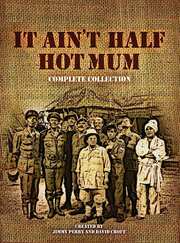
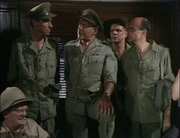
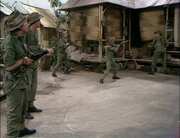
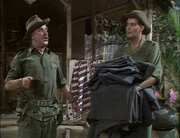
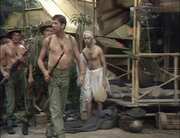
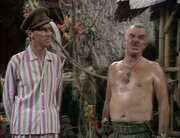
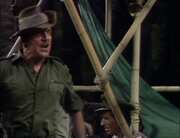
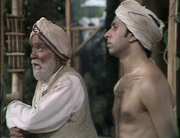
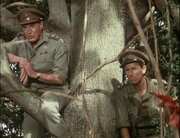
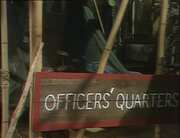
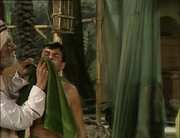
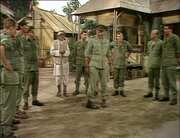
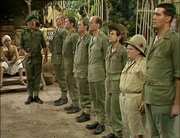
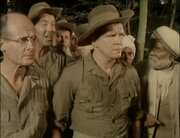
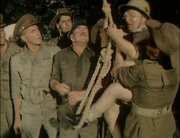
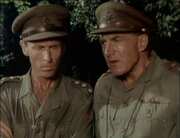
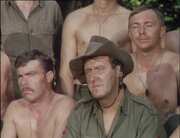
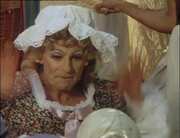
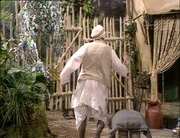
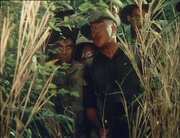
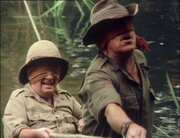
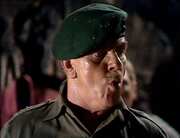
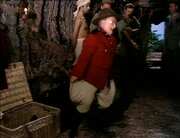
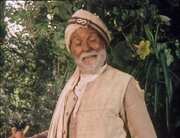
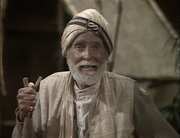
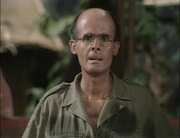
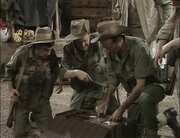
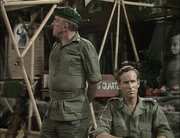
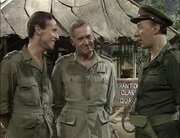
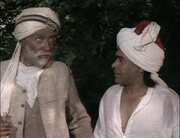
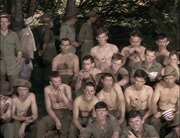
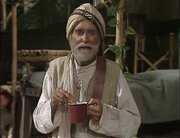
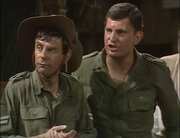
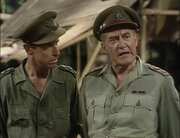
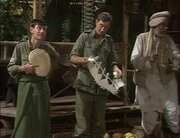
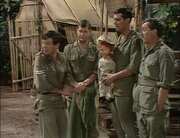
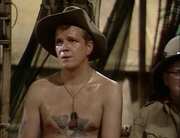
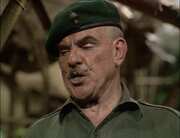
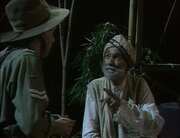
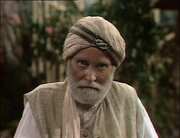
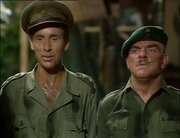




















































Your Opinions and Comments
Be the first to post a comment!